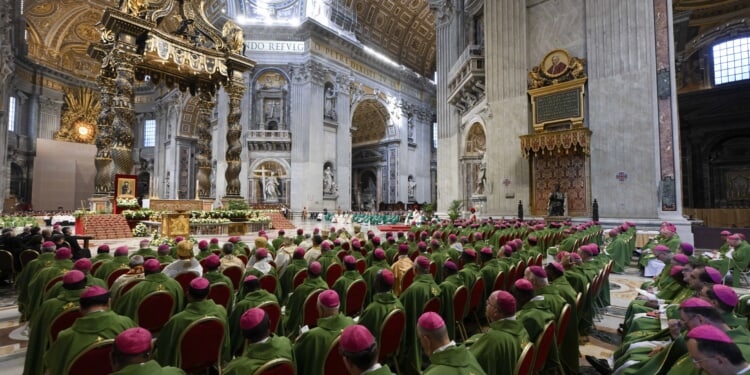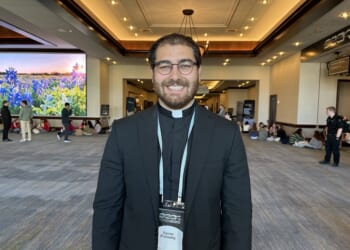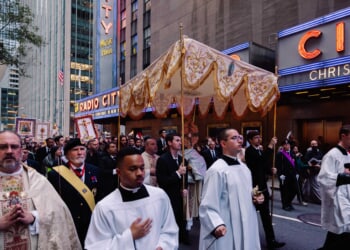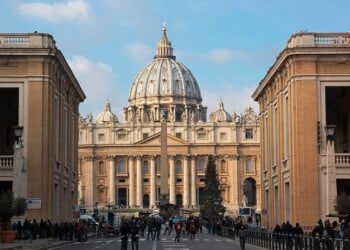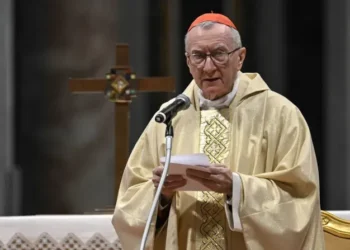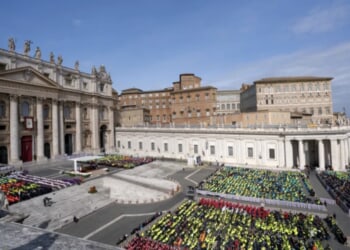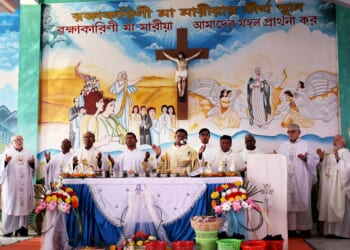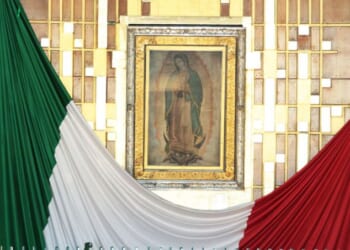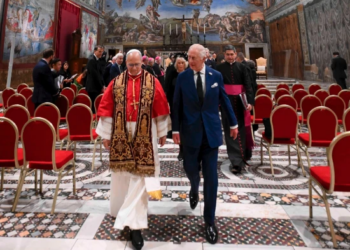Washington, D.C. Newsroom, Oct 20, 2025 /
15:23 pm
The Vatican has recognized an Australian bishop’s synodal plan to restructure the governance of his diocese.
The Vatican’s General Secretariat of the Synod has officially recognized a pastoral plan laid out by Bishop Michael Kennedy of Maitland-Newcastle that will see the diocese adopting a governance structure that “will operate in synodal mode.”
In an Oct. 14 response to the pastoral letter on social media, the Vatican synodal office posted the letter. The social media post said the bishop invites the faithful to “embrace this vision more fully,” fostering a Church that listens, learns, and acts together in the service of the Gospel.
What’s in the plan?
According to Kennedy’s missive, titled “Letter on Synodality and the New Diocesan Governance Framework for the Diocese of Maitland-Newcastle,” changes will be implemented on four levels.
First, a diocesan pastoral council will be formed to lead the diocese’s synodal process through the revitalization of its pastoral planning cycle, which the letter said had been paused due to the death of Bishop Bill Wright in 2021. “The pastoral planning cycle allows significant synodal engagement in the future direction of the diocese,” he said.
“This will be a significant milestone in our synodal journey,” Kennedy added, “but not its conclusion — the synodal journey is ever ongoing.”
The pastoral planning cycle will also be implemented on a parish level, “adapted to the circumstances of each community,” Kennedy said, noting: “It is intended that the 2025 revised statuses for parish pastoral and finance councils will assist.”
The diocesan curia will be restructured to reflect synodal “structures of participation.” Namely, Kennedy emphasized that “the governance of the bishops’ role has to be constitutional, follow the laws and customs of our Church, and be consultative (synodal); hearing those who need to be heard before decisions are made, which in some instances also requires receiving consent before acting.” The letter does not clarify what instances would constitute such procedures.
Lastly, the plan stipulates the formation of “new advisory groups that will adopt synodal working methods.” The groups will include three civil councils and four canonical councils. Among the civil councils will be the bishop’s senior leadership group, a governance council, and a safeguarding council. Canonical councils include a council of priests, pastoral council, college of consultors, and a finance council.
The advisory groups will provide advice to the bishop and diocesan trustees “for critical discernment” in their respective areas of expertise, Kennedy’s letter said.
A call to action
“In the coming months, we will invite expressions of interest from those who feel called to contribute their insight, skills, and experience as members of these advisory boards and councils,” Kennedy wrote.
“Whether your background is in pastoral life, education, social services, finance, governance, community leadership, or good plain commonsense problem-solving and decision-making,” he continued, “your perspective can help us faithfully serve our communities into the future.”
The Maitland-Newcastle bishop concluded the letter noting more information about the nature and scope of the advisory groups will be posted to the diocese’s website in the near future.
“I thank you for your ongoing commitment to the life and mission of our diocese,” he wrote. “Together, guided by the Holy Spirit, we will continue our journey as a local Church, faithful to the Lord” and focused on synodal listening, communion in faith and love, and mission to spread the Gospel.
(Story continues below)

